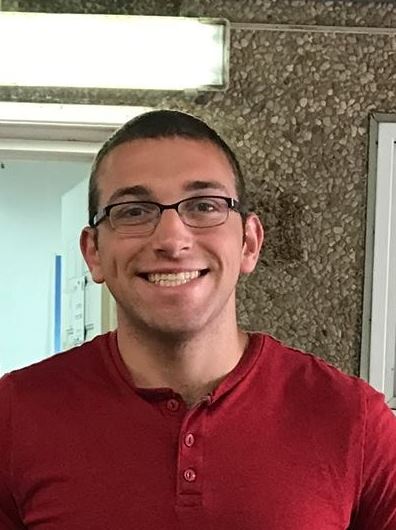
Imagine yourself 15 years from now. You have settled down, found a life partner, and started a family.
You have a job that makes you happy, a vibrant community, and beautiful children.
All of a sudden, war breaks out, and you find yourself in the crosshairs of a battle you didn’t ask for. You live close to the combat zone and constantly hear explosions and have to run with your family to a shelter frequently for safety. But, one time, you don’t make it.
You were seconds away from the shelter when the rocket went off. Seconds away. But, the rocket hit your house before you could get to the designated protected area. After the confusion and chaos, you call out for your family. Your family is trained to run to the shelter, but this time someone froze.
Your eldest son froze.
Your four-year-old son didn’t make it to the bomb shelter. He also didn’t make it through efforts to save his life. He’s gone.
This story happened, and it will happen again. Daniel Tragerman was just four years old when he was killed from indiscriminate rocket fire from Hamas terrorists in 2014. Hamas has indiscriminately shot thousands and thousands of rockets into Israel, aiming to kill as many as possible, civilians included.
Hamas has also built an intricate network of underground terror tunnels, leading from Gaza into Israeli communities and schools, where they can spring out and massacre children and innocents. They are responsible for the deaths of Israelis, Americans, and other nationalities by carrying out suicide bombings, stabbings, and shootings.
While Israel takes every precaution to minimize civilian casualties and follow the rules of war, going so far as to even drop leaflets and call civilians where areas are to be bombed so citizens have time to escape, Hamas purposely kills civilians. When civilians are unintentionally killed by Israel’s attacks, Israel has expressed regret, but stresses its right to defend itself, like any other sovereign nation. This is a far cry from Hamas, which praises its operatives for killing innocent women and children.
Politicizing terrorism
At an event hosted on February 20th, 2020 by members of Students for Justice in Palestine and Jewish Voice for Peace, collectively known as Columbia University Apartheid Divest (CUAD), Hamas, the terrorist group that rules Gaza, was referred to as a “political group.” It wasn’t clear to me how two student groups on campus could possibly describe Hamas as merely a “political group” – a group that has killed hundreds of innocents intentionally and mandates the killing of Jews in its charter. After having clarified to the presenters that Hamas was, in fact, designated as a terrorist organization by the United States for over 20 years, Canada for over 15, and many other countries, I asked the presenters a simple question: “Can you condemn Hamas’ attacks on innocent Israeli civilians?”
The response was deafening. It was not a no, but rather a justification. Firstly, I was told that I was asking a “politicized question.” I disagree, but even so, the entire event was politicized, with the presenters from CUAD telling one side of their extreme narrative, advocating for policies that would destroy Israel while glorifying violence. Other members of the audience also recognized the bias in the presentation, even asking questions about it, but nothing came of it.
I was specifically asking for their opinion in the most apolitical way possible, yet they rejected it because they claimed it was political, even if there was no political element in the question. It was purely a factual question. Second, I was told by the presenter from Students for Justice in Palestine that they were not in a position to judge Hamas’ “resistance,” because it isn’t up to them to decide what is moral and just. Yet, hypocritically enough, they had spent the previous hour pushing an agenda they decided was moral and just. Given the bluntness of the question, it isn’t a hard answer. The answer should have been a resounding “yes,” but instead, it was a justification for terror and a further display of the extremist sentiment on our campus.
Furthermore, a student asked the presenters if they engaged with pro-Israel groups on campus to promote peace and dialogue. CUAD responded that they do not even talk to pro-Israel groups on campus for fear of legitimizing the State of Israel. Indeed, SJP practices an “anti-normalization” policy with pro-Israel students, disavowing peaceful dialogue and even ostracizing students with opposing opinions. This was clearly on display last year during the Columbia College Student Council (CCSC) meeting on BDS, when a member of CUAD referred to the mostly Jewish, pro-Israel section as the “others,” drawing a sharp gasp from CCSC and most of those present in the room.
I call on those student groups aligned with CUAD, SJP, and JVP, for the sake of coalitions and intersectionality, to carefully reconsider their association with groups that even slightly support terror against innocents, especially four-year-olds, and that shun dialogue with students who hold different opinions. Ralph Waldo Emerson once said, “Peace cannot be achieved through violence, it can only be attained through understanding.” Any extremist element on this campus that justifies terror and disavows dialogue needs to be recognized for what it is. To all of those clubs that stand with CUAD, JVP, and SJP, please, know your bedfellows.
Contributed by 2019-2020 Columbia University CAMERA Fellow Marc Cohen.

